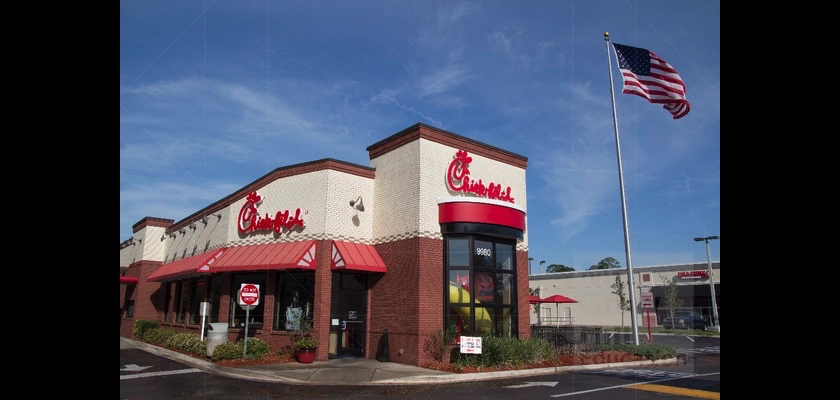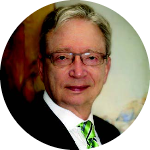Chick-fil-A Eyes Asia and Europe for Growth | April 2023
Chik-Fil-A is widely regarded as one of America's favorite fast food restaurants and it is ready for new growth as it looks to expand into Asian and European markets.

Chick-fil-A is widely regarded as America’s favorite fast food, according to multiple industry surveys. It is one of the largest fast-food restaurant chains in the United States and continues to grow. Now, the company wants to sell its iconic chicken sandwiches in Asia and Europe with a $1 billion international expansion plan through 2030.
The first Chick-fil-A was established in 1967 after the founder, Truett Cathy, had started in the restaurant business in 1946. The firm remains a nationwide family-owned restaurant. As Chick-fil-A looks to open its first restaurants in Europe and Asia by 2026, the question becomes whether the restaurant’s business model will translate in other countries.
Quality over quantity
Chick-fil-A takes a different approach to the prep work method of their food. Its motto is “Cook less, more often.” Quality is emphasized over quantity. This allows its chicken sandwiches to stand out from the competition. The restaurant’s name has a hidden meaning to show they are the best in quality. Its name is a take on “chicken fillet” with a capital “A” at the end. The “A” stands for top quality.
Other fast-food chains tend to expand their menus over time to attract new customers, but Chick-fil-A’s business model has always focused on keeping things simple and maintaining a small menu focused on chicken sandwiches. This helps the chain focus on consistency. Chick-fil-a's original chicken sandwich is the same today as it was in 1967.
Franchising
Because Chick-fil-A has more than 2,700 restaurants run by different franchised operators, it makes certain that operators are aware of the chain’s high standards of quality. Opening a franchise requires a $10,000 initial franchise fee ($15,000 CAD in Canada), and the individual must not be involved in other business ventures. This is very low compared to other chains which require franchisees to pay for most of the costs of opening a new restaurant. In Chick-fil-A’s business model, Chick-fil-A owns all of its restaurants, selects the locations, and builds the restaurants.
Chick-fil-A wants to make certain the operator can run the franchise hands-on and full-time. Operators are hand-selected by Chick-fil-A. Training for new operators lasts multiple weeks to equip them with the expertise to make the day-to-day decisions of running a successful business. Chick-fil-A’s emphasis on quality and training has enabled its franchise operators to work independently as business owners while continuing to advance the company’s values, goals, and reputation for quality.
This successful operation of its franchise has contributed to Chick-fil-A’s current status as the third-largest fast-food chain in the nation behind only McDonald’s and Starbucks. Even though drive-thru wait times of typically longer than other chains, consumers are still pleased with the quality of the product.
Chick-fil-A around the world
Chick-fil-A has tested international markets before with limited success. For example, it opened in South Africa in 1996 but closed in 2001 due to poor consumer awareness. Additionally, a location in the United Kingdom closed after facing opposition from gay rights advocates. Currently, Chick-fil-A is found in the United States, Canada, and Puerto Rico.
According to Andrew Cathy, the company's current chief executive officer, international growth is necessary for the company to grow. According to Cathy, Chick-fil-A wants to continue to dip its toes in international markets and learn from these experiences.
Chick-fil-A is mostly likely to consider countries with stable economies, dense populations, and strong demand for chicken. Another important consideration is replicating its U.S. supply chain in other countries. As of now, the company says international locations will focus on chicken sandwiches, waffle fries, and milkshakes with some minor localizations of its menu.
It seems Chick-fil-A will attempt to use the same approach to franchising as it does in the United States. The company has not decided how many international restaurant locations will open in Europe and Asia, but it plans to use its model in which franchisees only run a single restaurant and work closely with corporate.
In the Classroom
This article can be used to discuss barriers to international trade (Chapter 3: Business in a Borderless World), franchising (Chapter 5: Small Business, Entrepreneurship, and Franchising), and management (Chapter 6: The Nature of Management).
Discussion Questions
- What are some of the advantages of operating Chick-fil-A as a franchise? Disadvantages?
- Describe Chick-fil-A’s management style in the United States and its focus on quality.
- Do you think it will be easy for Chick-fil-A to translate its business practices for foreign markets?
This article was developed with the support of Kelsey Reddick for and under the direction of O.C. Ferrell, Linda Ferrell, and Geoff Hirt.
Sources:
Chick-fil-A, “Who We Are,” https://www.chick-fil-a.com/about/who-we-are
Chick-fil-A, “Franchise Opportunities,” https://www.chick-fil-a.com/franchise
Heather Haddon, "Chick-fil-A Wants to Serve Its Chicken Sandwiches in Asia and Europe," The Wall Street Journal, March 13, 2023, https://www.wsj.com/articles/chick-fil-a-wants-to-serve-its-chicken-sandwiches-in-asia-and-europe-2af2eec4
Holly Petre, "Report: Chick-fil-A Plots International Expansion," Nation’s Restaurant News, March 14, 2023, https://www.nrn.com/quick-service/report-chick-fil-plots-international-expansion
"The Unconventional Franchise Model Behind Chick-fil-A’s Success," The Wall Street Journal, October 28, 2021, https://www.wsj.com/video/series/the-economics-of/the-unconventional-franchise-model-behind-chick-fil-as-success/18DD9C3D-5712-41BB-9F43-FB5F39301F92



